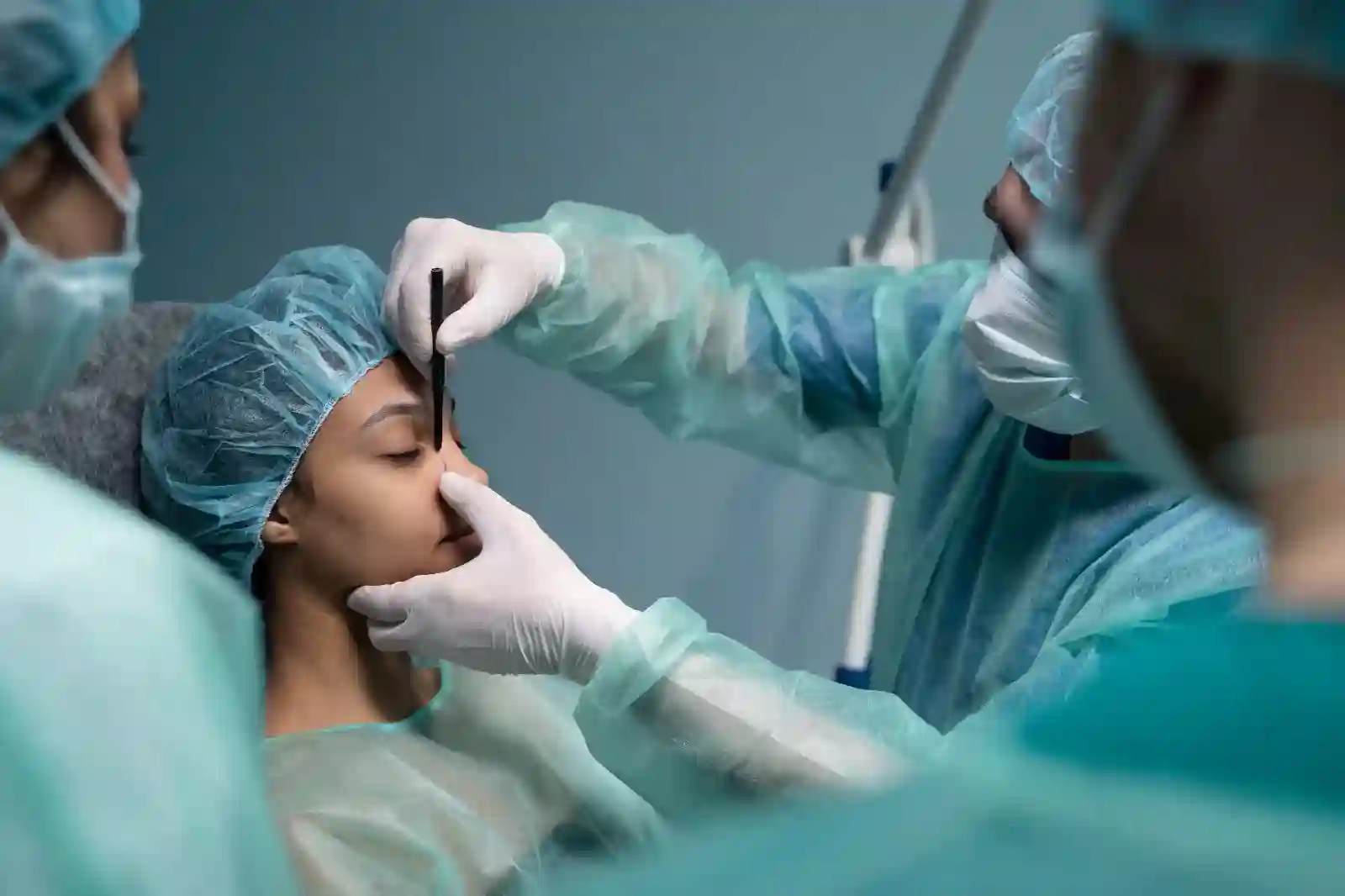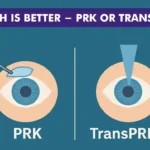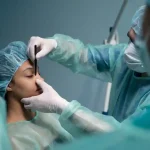Ever wondered about the magic behind eyes that seem to defy time? That’s where eyelid surgery, or blepharoplasty, steps in—a game-changer for brighter, younger-looking eyes. It’s like a secret for a more vibrant gaze that’s been gaining popularity. But, before we dive into this world of transformation, let’s put forth the risks that tag along. Let’s unravel the basics of blepharoplasty, dig into what could go sideways, get ready for the procedure, and figure out the dos and don’ts for a successful eye upgrade.
Risks of Eyelid Surgery:
Before opting for blepharoplasty, it’s crucial to be aware of the potential risks of eyelid surgery. These risks can include:
- Infection: Though rare, infections can occur after surgery. Following proper hygiene and post-operative care, instructions can minimize this risk.
- Bleeding: Some bleeding is normal after surgery, but excessive bleeding may occur. This risk is higher for individuals with a history of bleeding disorders.
- Scarring: While efforts are made to minimize scarring, it’s an inherent risk of any surgical procedure. Scars can vary in visibility and fade over time.
- Anesthesia risks: Adverse reactions to anesthesia, though uncommon, can occur. It’s crucial to disclose your medical history and follow pre-surgery fasting guidelines.
- Hematoma: Accumulation of blood outside blood vessels may lead to hematoma, causing swelling and discomfort. Timely medical attention is necessary.
- Eye irritation: Temporary irritation, dryness, or sensitivity in the eyes may occur. Following post-operative care instructions can alleviate these symptoms.
- Vision changes: In rare cases, vision changes may occur. Discuss any concerns with your surgeon before the procedure.
- Prolonged swelling and bruising: Swelling and bruising are normal post-surgery, but if they persist for an extended period, consult your surgeon.
- Allergic reaction: Some individuals may experience an allergic reaction to medications or materials used during the surgery. Inform your surgeon of any allergies beforehand.
- Asymmetry: Achieving perfect symmetry is challenging. Minor asymmetry may persist post-surgery.
- Dry eyes: Temporary dry eyes are common after blepharoplasty. Lubricating eye drops may be recommended to alleviate discomfort.
How to Prepare for Blepharoplasty
To ensure a smooth and successful blepharoplasty experience, it’s essential to be adequately prepared.
- Before eyelid surgery: A complete eye exam consultation is crucial. Discuss your medical history, expectations, and any concerns with your surgeon.
- During eyelid surgery: A brief surgical procedure, typically lasting a few hours, involves the removal or repositioning of tissues to achieve the desired results.
- After eyelid surgery: Temporary symptoms like swelling, bruising, and discomfort are normal. Follow post-operative care instructions diligently.
Do’s and Don’ts to Avoid Blepharoplasty Risks and Complications:
To optimize your recovery and results, keep eyelid surgery side effects at bay, adhere to these specific guidelines:
- Dietary guidelines: Follow any dietary restrictions provided by your surgeon, especially regarding pre-surgery fasting.
- Medication instructions: Take prescribed medications as directed and avoid certain over-the-counter medications that may increase bleeding risk.
- Activities to avoid: Restrict strenuous activities and avoid exposing your eyes to harsh conditions like wind and sunlight during the initial recovery phase.
Potential Candidate for Eyelid Surgery
Ideal candidates for blepharoplasty typically meet certain criteria:
- Age: Individuals over 18 years old, with realistic expectations, are suitable candidates.
- Health status: Good overall health is crucial. Individuals with specific health concerns should discuss them with their surgeon.
- Eyelid concerns: Sagging or puffy eyelids that impact vision or aesthetics make someone a potential candidate.
As we approach eyelid surgery, the enticing pros of the procedure are balanced with a nod to the potential blepharoplasty surgery risks. With a skilled eye surgeon by our side and knowledge about possible challenges, you can confidently say yes to blepharoplasty. Achieving striking eyes isn’t just about getting there; it’s a process that needs a thorough understanding, preparation, and a commitment to managing some minor risks.
Always consult with your surgeon to address any concerns and make informed decisions regarding your eye health and appearance. If you’re curious about discovering the possibilities for your own brighter eyes, let Centre For Sight guide you. Get in touch with us to book your appointment with our expert eye specialists and surgeons
FAQs
How can I minimize the risks of eyelid surgery?
Minimize risks of blepharoplasty by:
Consult a qualified medical professional for personalized advice
Choosing a certified, experienced surgeon
Discussing expectations and risks in a personal consultation with the doctor
Providing a detailed medical history and adhering to pre-op guidelines
Following post-op care instructions meticulously
Attending all scheduled follow-ups for monitoring and guidance
Steering clear of smoking and medications that heighten complications
Promptly informing your surgeon of any concerns or unusual symptoms
What should I expect during the healing process?
During the eyelid surgery healing process:
Immediate post-op: Expect initial swelling and bruising, gradually reducing.
- First week: Follow post-op care, use prescribed medications, and avoid strenuous activities.
- 2-4 weeks: Swelling continues to diminish; most can resume regular activities.
- 1-3 months: Final results become more apparent; any residual swelling fades.
- Long-term: Generally permanent results, enhancing overall eye appearance.
Consult your eye surgeon for personalized guidance and promptly address any concerns
Are the results of eyelid surgery permanent?
Yes, the results of eyelid surgery are generally permanent, providing a long-lasting enhancement to the appearance of the eyes.
Is eyelid surgery suitable for everyone?
Eyelid surgery may not be suitable for everyone. Consult with a certified eye specialist to determine eligibility based on individual health, expectations, and medical history.
How do I choose a qualified surgeon for my eyelid procedure?
Choose a qualified surgeon for your eyelid procedure by:
- Checking credentials: make sure they are specialists in oculoplasty or eyelid surgeries.
- Reviewing experience: opt for a surgeon with expertise in eyelid surgery.
- Go through reviews: look for positive patient testimonials
- Consulting: have a thorough discussion to assess comfort and confidence.
- Verifying facilities: Ensure the surgical facility meets safety standards.
Always prioritize expertise and patient satisfaction when selecting a surgeon for any treatment.





